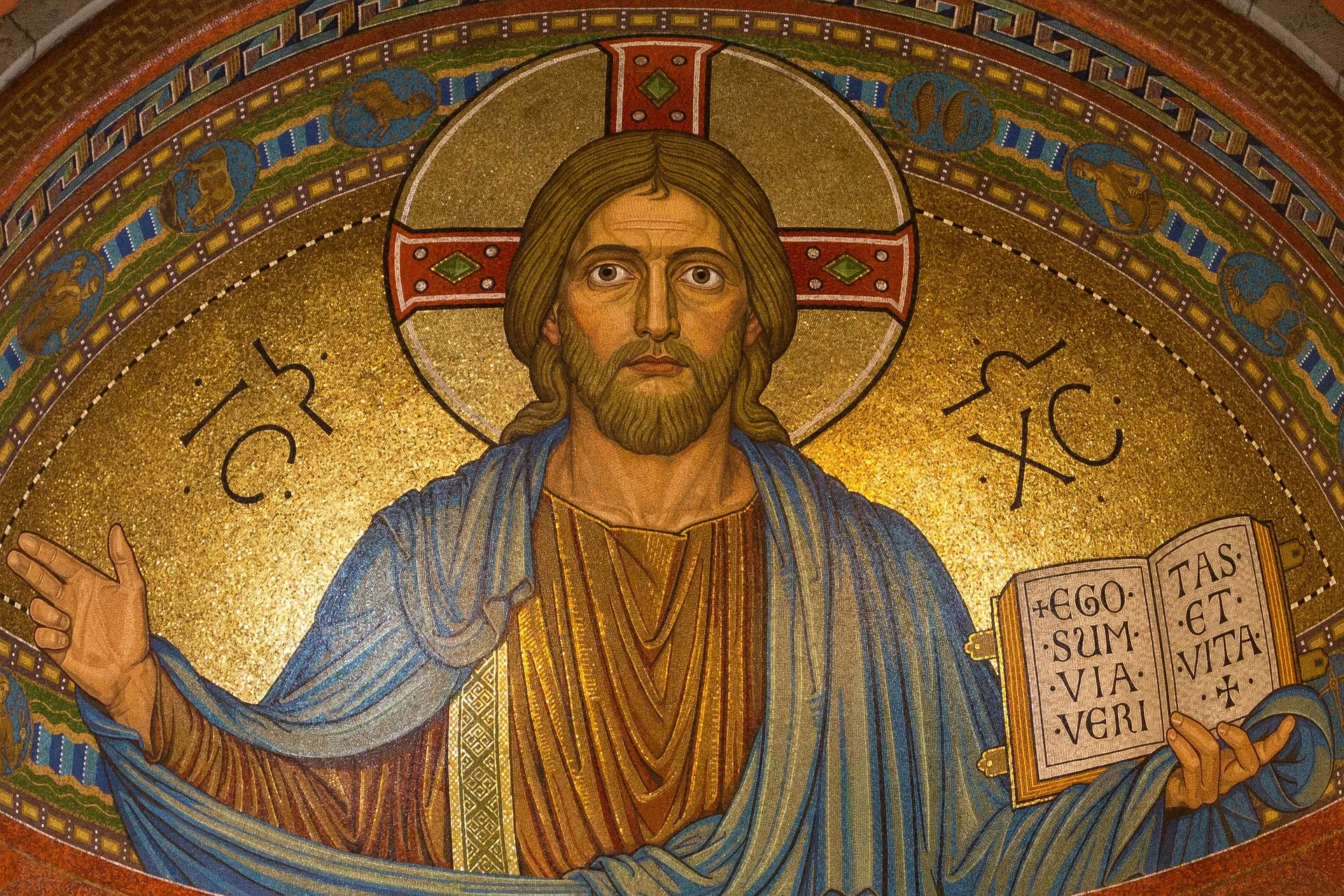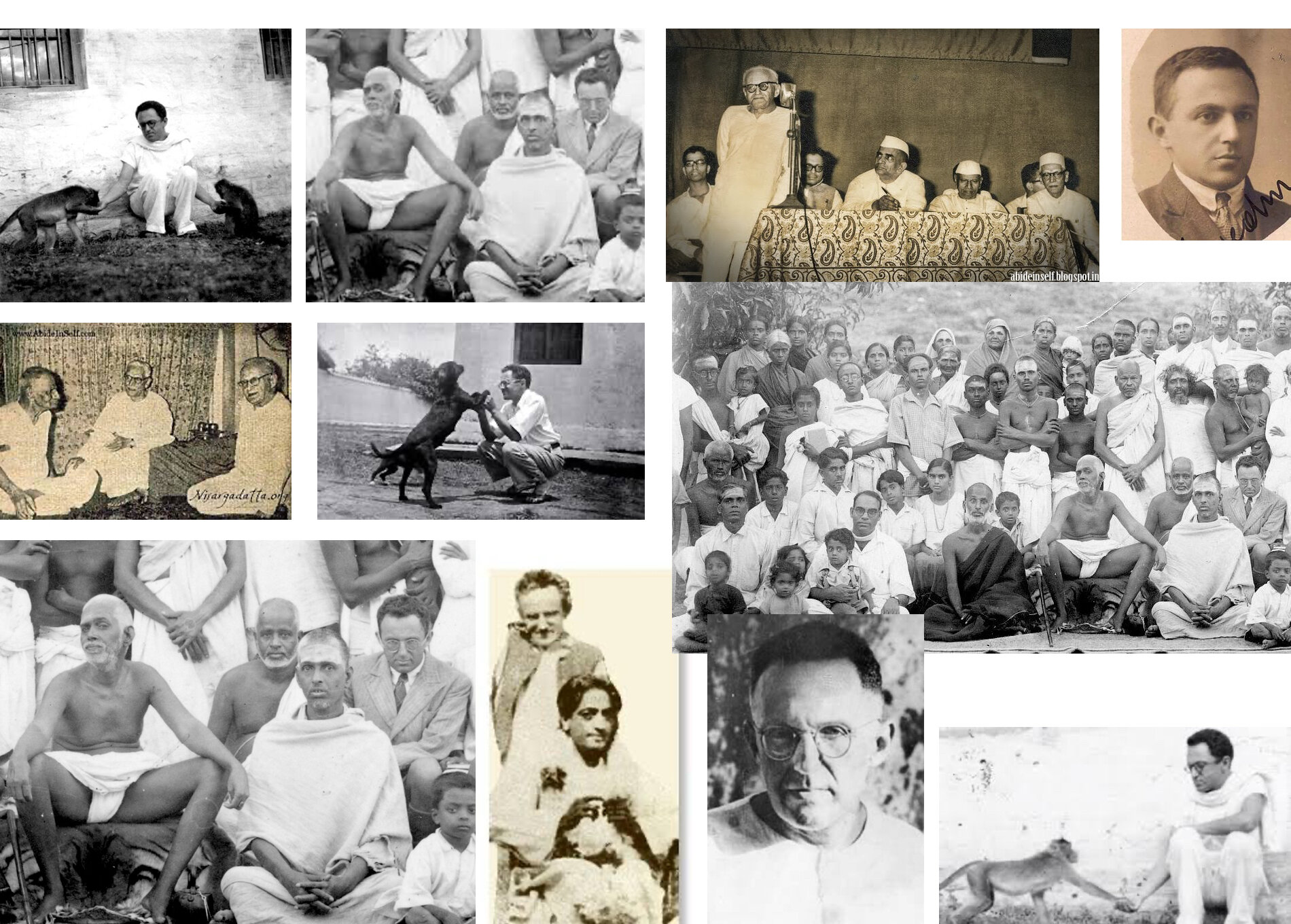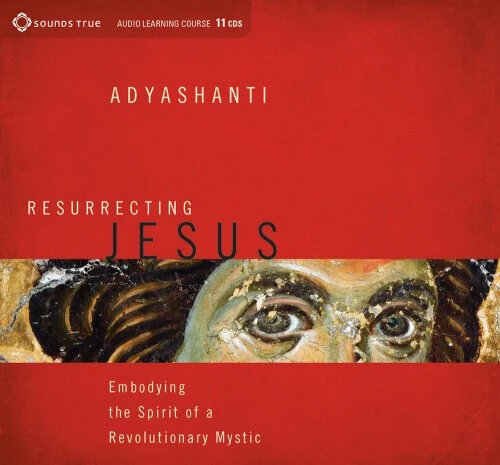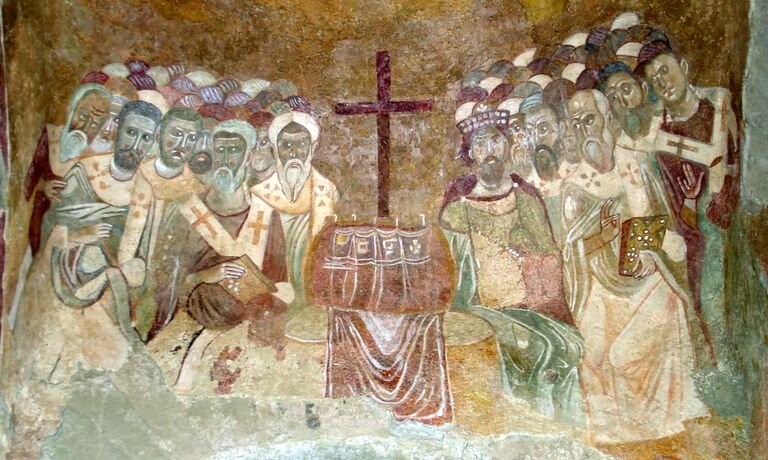
“What is Life? — Philosophical Conversations” - with Ilia Delio
Ilia and Tim discuss the pioneering work of Pierre Teilhard de Chardin, life and death, the power of love and being ‘pilgrims from the future’.
VISIT TIM’S PODCAST: https://podcasts.apple.com/us/podcast/the-freke-show/id1216387576
VISIT ILIA DELIO’S WEBSITE: https://christogenesis.org

Transfiguration – Then and Now by Fr. Sean O'Laoire
A. The Real Meaning of Thabor
The purpose of the gospels in writing of the transfiguration was to show that Jesus was the fulfillment of the Jewish Scriptures. Traditionally, these scriptures were divided into three sections – the acronym ‘TaNaKh’ was used to represent them. “T” stood for Torah, the first five books of the bible, ascribed to Moses and known as “The Law.” “N” stood for Nebiim or “the prophetic books.” And “K” stood for Ketuviim or “writings” (the wisdom literature – psalms, Job, Ruth etc.) The Pharisees accepted all three parts as inspired, but the priestly caste, the Sadducees, only accepted Torah and Nebiim. Moses was the archetype of Torah; and Elijah stood for the prophets. So, the evangelists wanted to show that Jesus’ encounter with Moses and Elijah was the fulfillment of both streams of revelation. Moreover, God had traditionally appeared on mountain tops – Sinai in the case of Moses and Horeb in the case of Elijah (some scholars claim Sinai and Horeb were the same mountain), so the evangelists situate this event on Mount Thabor. In the transfiguration scene also, God appears and singles out Jesus as “my beloved son in whom I am well pleased.” So, whatever else is true, this was a literary device to make a strong case for the new covenant – the Jesus movement.

“Walking Meditation” by Thich Nhat Hanh
The practice of mindful walking, says Thich Nhat Hanh, is a profound and pleasurable way to deepen our connection with our body and the earth. We breathe, take a mindful step, and come back to our true home. Read on and learn how to.

“The Loss of the World Soul and its Return” by Anne Baring
You could not discover the boundaries of the soul,
even if you travelled by every path in order to do so, so deep a measure does it have.
~Heraclitus
My heart is longing for a lost knowledge, slipped down out of the minds of men.
-from the Sanscrit poem Black Marigolds, Chaura-panchasika, 1st century CE
Once upon a time, in a past so distant that we have no memory of it, the invisible and visible dimensions of life were imagined and instinctively experienced as a sacred unity. In the great civilisations of the Bronze Age (c.3000 bce), particularly those of Egypt, India and China, the whole cosmos was envisioned as a living being and the manifest world was seen as an epiphany or showing forth of an unseen source which breathed it into being, animating and sustaining it: the air itself was experienced as the invisible presence of that world – an “awesome mystery joining the human and extrahuman worlds.”(1)

“Love In Disguise” by TiberJudy
There’s an old story that’s told about a king who lived in a far-off, distant land. He had a rich kingdom, with all his needs and most of his desires met everyday by the royal court that served him. He was loved and respected by his family and noblemen and was known throughout the land for his wisdom and fairness. It seemed the king had everything he could have ever wanted. Except for one very important thing: he had no heir

"Yin: Beloved Dark" by Jeannie Zandi
While your eyes are closed, I want to invite you to let your whole body soften. Let your attention sink into your felt experience. You might take a few long breaths. Focusing on the exhale, just to let the whole body settle. And gentle. Noticing the weight of the body sinking into your chair, into the earth. Letting your root soften open to the earth, as much as it can. Letting your belly be fat. Inviting the solar plexus to soften with breath. The heart to soften. The hands. The face. Let every expression just droop off of your face. Just here. Softy. Letting breath travel around your body. Softening as it goes. Softening all around the things that are tight, letting them be here. Letting them float along in our soft pool of being. Little nuggets of tenseness floating in this soup of being. And this is the voice of yin. The voice that invites softening, the voice that invites sinking, the voice that invites receptivity, availability. The voice that calls us to soften and dissolve. Give into gravity.
SUPPORT MS. ZANDI INSPIRING WORK

“The Evolution of Atonement Theories in Western Christian Theology: Where they Have Been and Where They are Going” by Madeleine Rebouché
ABSTRACT
There are three main ways of viewing the atonement that have dominated Western Christian Theology in the past: the classic view, the Latin view, and the subjective view. Each of these views were important in their time and place within history, but it is time that we begin to search for a new way of viewing the atonement in order for the gospel to remain a viable narrative for Christians to connect to in contemporary thought. I argue that the God must be nonviolent and that divine justice should follow a restorative versus a retributive model of justice. It is through these new understandings of God’s character, agency, and justice that the atonement must be understood.

“The Tao Of Health, Sex and Longevity” (excerpt) — by Daniel Reid
Taoists advocate living (that is, being connected) in complete harmony with the great patterns of nature (as opposed to our modern day disconnect with the wonderment of creation and ultimately our capacity to listen and be intuitively fed), and they venerate (regard with the greatest respect/admiration, lionize, revere) womanhood precisely because women are by nature far closer to…

“The Heart is Infinite” by Amoda Maa
The heart is infinite—like a bottomless well.
The heart can absorb and allow everything—including what you perceive as a grievance, as an attack, as an offense.
The heart doesn’t reject anything, and neither does it invest itself in anything. Everything can be thrown into that well, and in that tenderness it is purified.

“Why We All Need Philosophy” by Mark Manson
“To win true freedom, you must be a slave to philosophy” ~Epicurus
The great philosopher Ludwig Wittgenstein was once sitting in a park having a philosophical discussion with a friend when his friend, quite animated, stood up and said loudly, “That is a tree! I know for a fact that that is a tree!”
An awkward pause ensued as the two men realized that passersby had stopped and were now staring at them. Wittgenstein, thinking quickly, turned to the people and said, “Do not worry, this fellow is not insane… we are merely doing philosophy.””
SUPPORT MARK MANSON’S GREAT WORK AND WEBSITE

David Godman interview - Buddha and the Gas Pump (excerpt on Maurice Frydman)
David: Maurice Frydman is one of the most extraordinary people I have ever come across and virtually nothing is known about him. Because of his connection with Ramana Maharshi, Krishnamurti, Gandhi, Nisargadatta, the Dalai Lama, I kind of view him in my own mind as the Forrest Gump of 20th century spirituality. He was in all the right places in all the right times to get the maximum benefit from interactions with some of the greats of Indian spirituality, and at the end of his career he was just about the only person that Nisargadatta certified as a jnani.
So in between all these trips to India’s major gurus, he was a Gandhian; he worked for the uplift of the poor in India; he worked with Tibetan refugees; he edited extraordinary books. I am That is probably one of the all-time spiritual classics. This man for me is, how shall we say, a shining beacon of how devotees could and should be with their teachers. He was just an absolutely extraordinary man. Oh, and he went out of his way to cover his tracks, to hide what he had actually accomplished in his life.
So I have enjoyed the detective work of looking in obscure places and digging out stuff that he personally tried to hide, not because it was embarrassing, but because he didn’t like to take credit for what he had done. So I see this as an opportunity to wave the Maurice flag and say, ‘Look, this is one of the greatest devotees, sadhaks, seekers from the west who has been to India in the last 100 years and I think more people should know about him.’
BE A SUPPORTER OF BUDDHA at the GAS PUMP

“Teilhard De Chardin and The Future of God” by Ilia Delio
In his book God After Darwin theologian John Haught claims that evolution opened a new window to God, giving us a new vision of God at home in a universe of chance and law. Not everyone has accepted this claim, however. Strict materialists such as Richard Dawkins readily dispense with God as an unnecessary hypothesis in an evolutionary world, claiming that it runs quite well on genes and natural selection. On the other hand fundamentalists say that evolution belies God’s orderly creation recounted in the first book of Genesis. Evolution contradicts God’s providential design of creation. In the midst of these polarities stands the figure of Pierre Teilhard de Chardin, a Catholic Jesuit priest and a trained scientist. Teilhard was one of the most provocative and seminal thinkers of the twentieth century; yet, his ideas are still marginally accepted. As a paleontologist, Teilhard’s insights arose from his keen observations of the natural world and he was dazzled by the convergence of elements to form the stuff of life. His keen observation of nature and its inherent direction towards unity inspired him to seek God in nature.

“If Jesus Were Alive Today” by Adyashanti — from 'Resurrecting Jesus: Embodying the Spirit of a Revolutionary Mystic' (EXCERPT)
I often wonder what would it be like if Jesus were alive today. Imagine Jesus—who wasn’t a Christian, after all, but a Jew—entering a church today, going up to the pulpit and giving a sermon. Can you imagine how challenging that would be for the congregation? Can you imagine how uniquely different that sermon would be from what many of us received in church?
BE A SUPPORTER OF ADYA’S WORK

"The Wisdom of Insecurity" by Alan Watts — Alan Watts
"...when you really understand that you are what you see and know, you do not run around the country-side thinking, 'I am all this.' There is simply 'all this.'
"...our experience is altogether momentary. From one point of view, each moment is so elusive and so brief that we cannot even think about it before it has gone. From another point of view, this moment is always here, since we know no other moment than the present moment. It is always dying, always becoming past more rapidly than imagination can conceive. Yet at the same time it is always being born, always new, emerging just as rapidly from that complete unknown we call the future. Thinking about it almost makes you breathless."
BE A SUPPORTER OFD THE ALAN WATTS PROJECT

“Accepting the Paradoxes in Your Life” by Marc Lesser
Intuitively we know that all humans are complex and contradictory. Embracing our paradoxes provides real insights into ourselves and allows for more self-acceptance.
A paradox is something that appears to be contradictory, unbelievable, or absurd but may in fact be true. Do less; accomplish more. These statements present a paradox. Acknowledging, owning and embracing the paradoxical nature of our lives, the lives of others and the world can lessen our resistance to change and increase our effectiveness. At its most basic it makes us less tense and more open to happiness.
SUPPORT HUFFINGTON POST AND THE WORK OF MARC LESSER

“The Arian Controversy and the Council of Nicea” by N.S. Gill
The Arian controversy (not to be confused with the Indo-Europeans known as Aryans) was a discourse that occurred in the Christian church of the 4th century CE, that threatened to upend the meaning of the church itself.
The Christian church, like the Judaic church before it, was committed to monotheism: all the Abrahamic religions say there is only one God. Arius (256–336 CE), a fairly obscure scholar and presbyter at Alexandria and originally from Libya, is said to have argued that the incarnation of Jesus Christ threatened that monotheistic status of the Christian church, because he was not of the same substance as God, instead a creature made by God and so capable of vice. The Council of Nicea was called, in part, to resolve this issue.
Be a supporter of ThoughtCo

What, in God’s Name, is Christ Consciousness? (Part 1) by Seán ÓLaoire
Quite frequently, in homilies, lectures and writings, I use the phrase, “Christ Consciousness.” Some weeks ago, a parishioner asked if I might deliver a full ‘sermon’ on the topic. So, I did; and this blog, in two parts, is the result.
I don’t believe for a moment that Jesus of Nazareth was the only ‘avatar’ to exemplify and teach on this topic. Very similar ideas can be found in the terms, “Buddha nature” (in Buddhism) and “Self-realization” (in Hinduism). And I would claim that even the Christian term “Salvation”, properly understood, is really the same idea. Of course, all of these articulations of the great mystical traditions have been misinterpreted and even abused as control mechanisms. More about that anon.
BE A SUPPORTER OF FR. SEAN O`LAOIRE’S WORK

“Healing My Religion” from healingmyreligion.com
“Dimension of the divine”.
“And the goal… is not to pray to God or have God tell you what to do, but to realize that you have been, all along, contrary to all of your illusions, a dimension of the divine. And in moments of heightened spiritual awareness, the boundary line… momentarily is erased, momentarily is blurred, and it’s no longer clear where you end and God begins.”
– Lawrence Kushner, scholar-in-residence at Congregation Emanu-El in San Francisco, from his conversation with Krista Tippett on On Being
I AM
Fact: when Jesus spoke to the crowds of people that gathered to listen to him, he the spoke in an ancient Semetic language called Aramaic. Another fact: the English language version of Jesus’ teachings that we have access to today were not translated from Aramaic, but instead translated from Greek after first being filtered through Greek philosophy and greek language.
Consequently, much of the modern English canonical gospels are a representation – and sometimes a downright manipulation – of the teachings of Jesus that best supported the Greek culture and worldview at the time.

“Infallibility and Its Errors, Part 3: The Infallibility of the Bible” by Seán ÓLaoire
The infallibility of the Bible
And the fourth shock to my hopes for some bastion of infallibility came as I studied the Bible. It, too, for all its wisdom and insights, has been filtered, edited, redacted and massaged by hundreds of generations of priests, translators and, yes, even emperors.
I have learned lots from newspapers, from theology, from science and from the Bible, but I am duty bound to separate truth from tactic, and fact from fiction; to recognize metaphor and allegory and distinguish those from historical data.
BE A SUPPORTER OF FR. SEAN’S WORK

“What If You Could Interview God?” by Alan Watts
If you were told that you were going to be given half an hour's interview with God and you had the privilege of asking one question, I wonder what you would ask? You might be given some preparation too. Because when you think what is your ultimate question? You'll probably do many things before you arrive at it. And I know many people would discover that they had no question to ask. The situation would be altogether too overwhelming. But many people to whom I’ve put this problem say that the question that they would ask is “who am I?” That is something we know very little about — because whatever it is that we call “I”, is too close for inspection. It's like trying to bite your own teeth or to touch the tip of your finger with the tip of the same finger. Although other people can tell you what or who you are and do. They only see you from the outside, as you see them from the outside. You don't see from the inside. And so the nature of what it is that we call I is extremely puzzling because there is some confusion as to how much of us is “I”.

